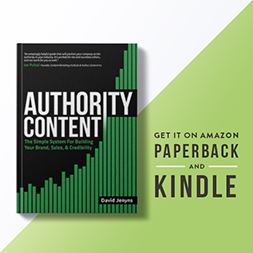Google has just released their Quality Guidelines report. They have released their Guidelines at least three or four times before and this most recent one is a one hundred and sixty page document used by the internal staff at Google. Google has a process it goes through to establish criteria for the ranking of websites. It documents, proves and automates. One of the key features of future ranking will be the down grading of those sites which are attached to an anonymous profile.

Top secret no more… we help you understand it.
What are these Guidelines?
Google’s leaked quality guidelines are used to help rank and determine what websites should be ranking for and where they should appear within the search engines. Google asks manual reviewers to go through and look at search results pages and websites. They then take that data and look for correlation between those websites that should be ranking and those that shouldn’t. They then feed that data back into itself like a machine algorithm learning that gets smarter and smarter.
Why am I not ranking higher?
Sometimes you’ll see Google making suggestions you should follow for best practice. You may follow those suggestions and still find another website which doesn’t follow those guidelines ranking above you. Part of the reason is that when Google comes out with the guidelines, it takes time for that to filter in to be turned it into the algorithm and mechanical ways found to search for it.
Google’s process
First Google documents what they want for their guidelines and they’ll write them down. They’ll say, a website that ranks should exhibit these criteria. Step two is they prove that it works. They’ll give these criteria to quality raters who go out and review different websites. They’ll then take that information back and push it into the search results and into their machine.
After that, they’ll get some feedback from different users as people start using the web. They’ll consider, is this providing the type of results that we want? If it is, step three is they automate it. That three step process, first documenting it, then proving it and finally automating it and pushing it into the algorithm is the process they go through.
Google’s slow period
There was a time there where it felt like not really much was happening in the search engines. Five or six years ago, it felt like Google was doing nothing. They came out with best practices and we all knew things like you shouldn’t be using white text on a white background and you shouldn’t be doing keyword stuffing. We knew we should ensure we had a variety of links from a variety of different sources.
Google came out and told us all of this. We saw it in Google engineer Matt Cutts’ videos he posts on his YouTube channel. He told us, this is what you need to be doing.
But there were plenty of examples where websites are still using bad tactics and ranking incredibly well.

Panda… and later penguin, are game changers.
Google steps up
We then had a period where Google began to document and to prove that this is what they wanted. When they moved it through to automation, that’s when we really started to see a lot of the fallout. They started to automate many of the things that became known, such as part of the Penguin update, which did a heavy analysis on back links and the way people were linking to websites. They also automated things that were happening onsite. This was where Panda was brought in. Once this became automated, that’s when we started to see a big fallout of a lot of sites. It was machine done as opposed to manually done.
Following this, Google has been giving us hints about what is actually coming. These Quality Guidelines indicate that.
To be anonymous is to be irrelevant
Earlier this year Eric Schmidt from Google issued some significant statements from an excerpt of a book he has coming out. He states that the true cost of remaining anonymous might actually be irrelevance. ‘Even the most fascinating content, if tied to an anonymous profile, simply won’t be seen because of its excessively low rank.’
What we’re hearing here is Google beginning the process, where they document and tell us what they’re looking for. It is the idea that you need to be seen as a verified online profile. You need to be seen as an author and authority in a space, otherwise your content in the eyes of Google in the future will be considered irrelevant. It will get an excessively low ranking and no visibility. This is Google telling us what is coming.
Use the Guidelines to improve your website’s ranking
Google’s leaked quality guidelines give an indication of what it will be looking for in order to rank websites. Although you may not immediately see the positive effective of following its suggestions, in time your website will benefit. One of the main areas to be aware of is that Google will no longer look favourably on anonymity.
Discover what it takes to triple your traffic and win in the new Google. Authority Content is what you need. Check out some of our reviews.



